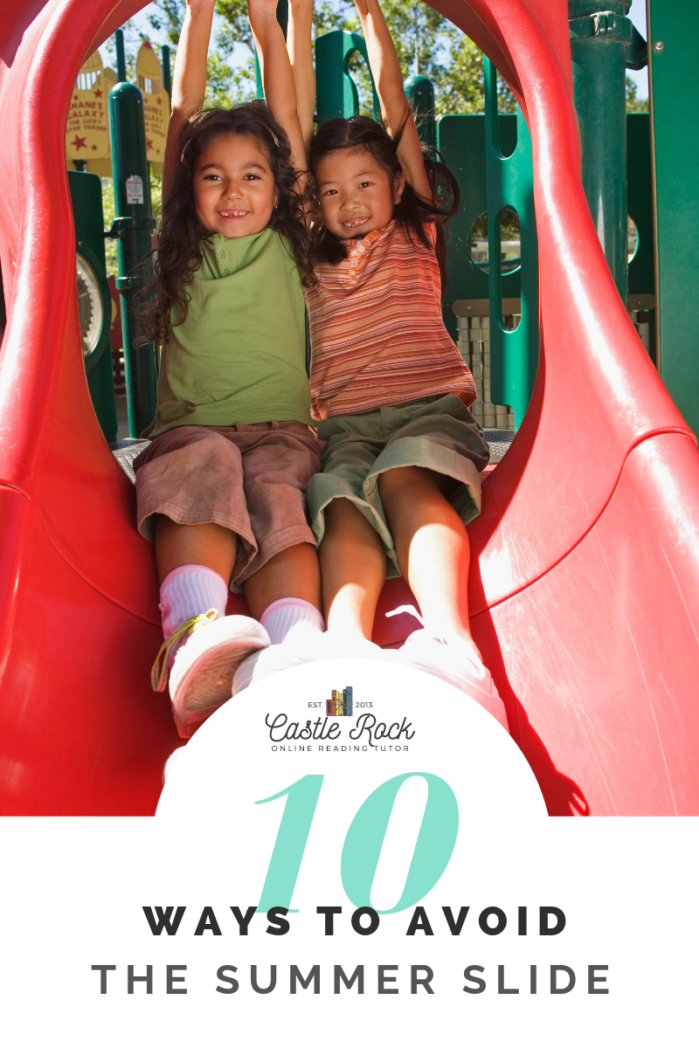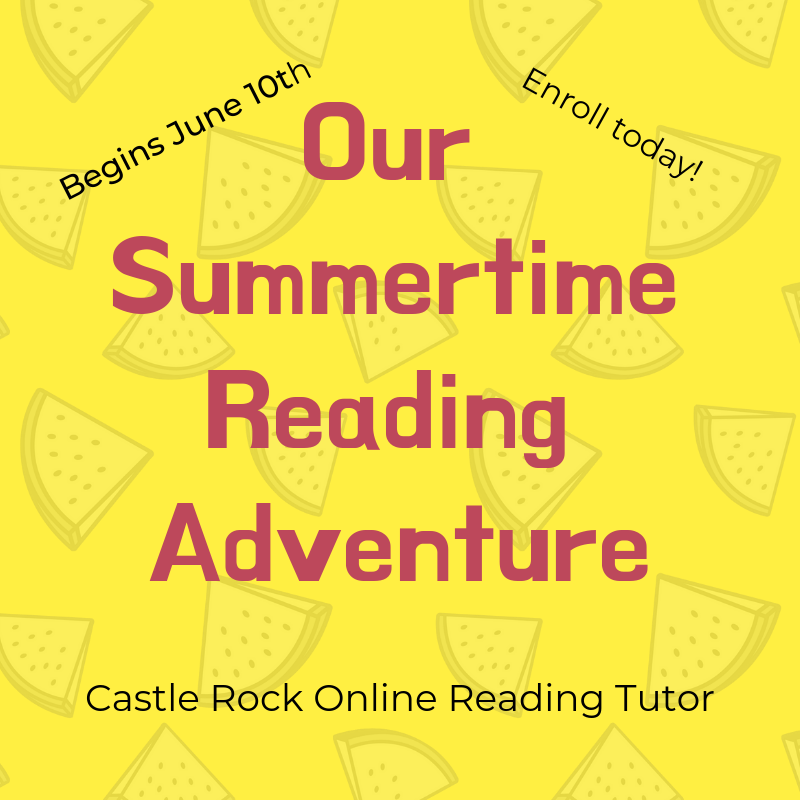10 ways to avoid the summer slide
Updated 4/29/2020
Boy, I know you are struggling this year. Camps will probably be closed, summer activities at church, and reading programs at the library. Unless they all choose to do it virtually. I have actually done just that to include all of the above. Friendship, reading, treats, wacky and family will all be included in Our Summertime Reading Adventure
To be completely honest the first time I ever heard about the summer slide was not when my children were small in school, it was not when I was in college studying to become a teacher. It was when I became a tutor over five years ago. So if you are in the same boat don’t worry. There is a lot to learn here…
What does “Summer Slide” mean?
“Summer slide” is the tendency for students, especially those from low-income families, to lose some of the achievement gains they made during the previous school year. … Educational, fun enrichment activities throughout the summer are an important feature of the programs Summer Slide – Colorado Dept. Education
However, statistics show that “2-month summer vacation students can lose 2 to 3 months of academic knowledge and skills every summer. That adds up! Therefore, by the end of grade 4, students can be 1 entire year behind only because of the impact of summer slide. Research indicates that summer slide may be a contributing factor to the achievement gap. ” (EC Parent Forum: Prevent Summer Slide, April 30, 2018)
It normally takes teachers several weeks to assess every child in their new classroom. Once they determine that and review what gaps their students have, not only reading but math and writing too. Most of the first month is over.
What is summer slide reading?
Summer slide reading should be taking place over the summer months. The books should be at the students current level or called “Just Right” books. The student should be reading between two to four books over the course of a two-month-long summer break. Many libraries have summer reading programs and some schools hold enrichment programs but you would need to contact your school for further information.
Many do not understand what “Just Right” books are, so I have written an eBook that is available on Amazon. I have also written previous blog post about what types of books your child should be reading. Your child may disagree with reading books that are at their level or you may have a child who is reading chapter books just like everyone else, which is fine. If your child argues and only wants to read the “chapter book” like everyone else make sure they read at least a page to you to see if they do not have the three mistakes on that page like I mention in my eBook.
What is summer reading loss?
As mentioned previously depending upon the socioeconomic background and the access to reading materials over the summer the gap may increase.
The study found that in the summer after kindergarten, 83 percent of children from low-income households did not have regular care arrangements with someone other than their parents, compared to 70 percent of those from non-poor homes. Higher-income students were also more likely to attend summer camp, with 38 percent of nonpoor students attending a day camp, compared to 13 percent of near-poor students and 7 percent of poor students. (Jones, Sasha 5/18, Education Week)
10 ways to avoid the summer slide?
1. Go to your public library – many public libraries near you may have a summer reading program. I know the one near me has a program where the children log the minutes that they read and at the end of the summer win an assortment of prizes.
2. Keep a journal or a scavenger hunt – a scavenger hunt sounds like so much fun. First, create a list of items that the kids need to find around the house or even a campground. Then, divide them up so you have one item at a time to look for and off they go. A journal could be used as an activity right before bedtime to write down what they did that day or even hope to do the next.
3. Books and crafts – I had the opportunity to talk with Alexandra of Scissors and Glue a blog based upon book reviews that she does and the activities she creates with each one. Take a look around and if you do not see a book listed she does have a form that you can request for her to do a review.
4. Cook a meal together – look through recipes on the computer or cookbook, print it out, make a grocery list of items together and go shopping. Next, get everything together and work together to make an awesome dessert or even snacks for a picnic.
5. Plant flowers or build a bird house – Your local home store may have plenty of flowers to plant or bird houses to build. Talk about colors, what you are going to need (dirt, hammer, paint, nails), make a list and work together to plant or build.
6. Science or Art museum – check and see if there are any FREE Family days. Have an adventure!
7. Local YMCA or recreation center – A few recreation centers have kids activities that are structured. They may even have daily excursions.
8. Family trip – Summertime there is nothing better than a family trip. Whether it is in your hometown as a stay-cation or a across country trip, there are always things to incorporate learning. Don’t forget your journal and especially your camera. The old pictures that I pull up with my family are so fun to look at now. Have them track the miles to the next rest stop or campground, even the motel or families house you will be visiting. Create a list of things to do while there and have them write it. So much to learn on a family outing.
9. Good book to read – grab a good book and lay in the shade or at the pool.
10. Our Summertime Reading Adventure (below)
How many minutes a day should a child be reading?
Did your child have a record for reading while in school? If not I have one available on my Teachers Pay Teachers site. Every child should be reading at a minimum of 20 – 30 minutes every day and with this
Don’t forget to check your local library for FREE reading resources and learn about
OUR SUMMERTIME READING ADVENTURE
Why Summer?
- Why is summer good for students? Summer is good because it is like a recharge from all of the academic pressures during the school year. It does not matter the age, even we need a break once in awhile, correct? You may have your own thoughts about the answers presented here. That is okay, I would love to hear your opinions below.
- Should summer break be longer? Many districts on the East coast return back to school after Labor Day and run until June. While schools here for example near Denver, return in early August and get out the end of May. This question is hard to answer. While there is the possibility of losing quite a bit over a longer summer break. A shorter break would help working parents but for teachers who need to do training or complete lessons, it is not very helpful.
- Why is there no school in the summer? When I moved here 13 years ago after my husband retiring from the Air Force a few of the surrounding schools were year round (9 weeks on and 3 weeks off, rotating tracks). In the 19th century many wanted a standardized calendar so that children could help on the farms during the summer months. (pbs.org 2014)
Countdown until Our Summertime Reading adventure starts
Day(s)
:
Hour(s)
:
Minute(s)
:
Second(s)
Don’t miss out!
Join Today
brought to you by Castle Rock Online Reading Tutor (Updated 4/29/2020)
Dates: June 8 – July 31


